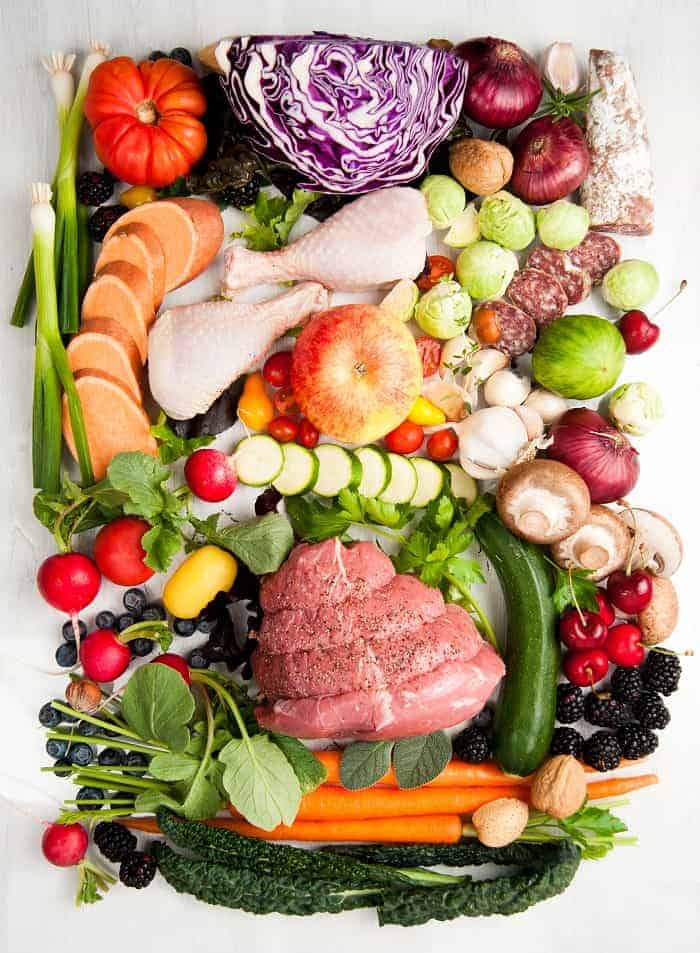If you’re exercising hard for more than 90 minutes, especially at a high-intensity level, you really have to be sure that you’re eating to support your performance and recovery.
You have to be serious about ensuring that the right nutrients are going to the right places and that your body doesn’t get sad and confused. Note: It is not cute to forget to eat. Eating is important, especially when you’re pedal to the metal. If your body isn’t getting the fuel it needs, your athletic performance will suffer.
The following tips can be used as a guideline for eating like an athlete.
Carbs. You need carbs when you’re doing any sort of endurance training. Plenty of complex carbs. That’s because your body converts carbohydrates to glucose, which gets stored in your muscles as glycogen. When you exercise, your body changes that glycogen into energy. (Ta-da!) This is where a lot of folks get confused and eat too many carbs for the activity they’re performing. If you are exercising for less than 90 minutes, there’s already enough glycogen in your muscles to support your activity. If your workout is longer than 90 minutes, though, you should be feeding your body plenty of carbs, roughly 70% of your calories, during the days (or day before if it is an early morning workout) that you’re exercising at that level. (This is why you’ll often hear about marathoners loading up on pasta the night before their big race.) Also, these carbs should be coming from healthy sources, like vegetables, fruits, and whole grains. Not potato chips. (But you already knew that.)
Some carb rules:
• Eat your carbs 3 or 4 hours before exercising. If you are exercising at 6AM, this may be difficult to do. You can either adjust your workout time or load up the night before.
• Carb loading for 3 or 4 days before a major endurance event will help top up glycogen stores and have you performing at optimal levels.
• You should be replenishing carbs and water during long exercise sessions. Snacks and fluids should be consumed every 20 minutes or so. Quality protein bars or fruit are good choices. (It’s hard to go for a bike ride or a run with a salad.)
Protein. Your body requires protein to maintain muscle. You should be eating between 1.2 and 1.5 grams of protein per kilogram of body weight each and every day. If you’re an endurance athlete, that number should be closer to 2 grams of protein per kg. Look for quality sources of protein like fish, nuts, eggs, milk, lean meats, or our Perfect Paleo Protein powder.
Fat. When you’re exercising at a high intensity for extended periods of time (like marathon running … golf claps to you, by the way!), your body dips into fat stores for energy when carbs are low. As long as you’re getting lots of good healthy fats in your diet, you don’t have to be eating additional fat besides what you get from your normal diet. On the day of an endurance event, avoid eating fatty foods because they can make you sick to your stomach.
Fluids. Drink water often when you’re exercising. If you’re a long-distance cyclist or runner, you should be drinking 8–12 ounces of water every 10 to 15 minutes during a training event. But I bet you didn’t need me to tell you that.
Electrolytes. Electrolytes help to transmit nerve signals within your body. That is an important job. But when you sweat, you lose them, along with fluids. In order to healthily replace electrolytes, you can make your own sports drink rather than buying the sugary ones from the store. All you need is 3/4 cup of fruit juice (blueberry/lemon would be delicious), 2 cups of water, a couple of tablespoons of honey, and a pinch of sea salt. Blend the ingredients, and you’ll have a homemade electrolyte replacement beverage. Delish.
Snacks. You should be hungry roughly every four hours during the day if you’re an avid exerciser. And, even if you’re not, you should be snacking anyway. Trail mix, oatmeal, nut butters with banana and apple slices, fresh fruit, crackers, Greek yogurt, boiled eggs, baked sweet potatoes, seeds and nuts, smoothies, popcorn, veggies sticks, canned tuna… all great snacks to be grazing on throughout the day.
Fuel that body like an endurance athlete because if you’re working out for more than 90 minutes at a time on a regular basis, that’s exactly what you are!
Click here for one of my favorite smoothie recipes!
